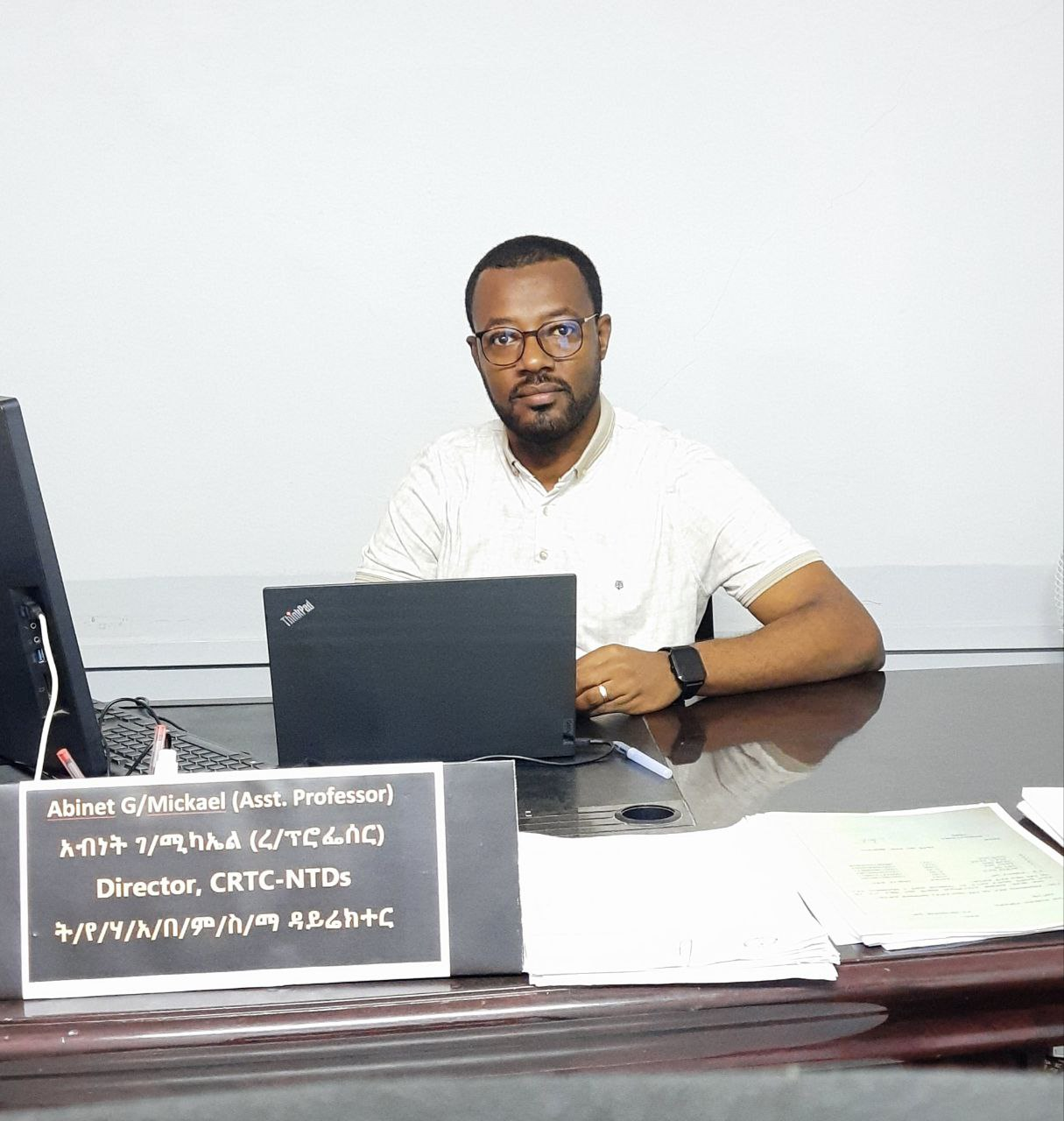Abinet Gebremickael (Assistant Professor)
Director, Collaborative Research and Training Center for Neglected Tropical Diseases (CRTC-NTDs), Arba Minch University (AMU)
Email:
Mobile: +251 925 924 290; P.O. Box: 21; Arba Minch, Ethiopia
Overview
The Collaborative Research and Training Center for Neglected Tropical Diseases (CRTC-NTDs) was established in 2015 at Arba Minch University, within the College of Medicine and Health Sciences. Since its inception, the Center has made remarkable strides in addressing the health and socio-economic impacts of NTDs in Ethiopia. Through rigorous research, capacity building, consultancy, and community engagement, the CRTC-NTDs has played a pivotal role in shaping national efforts to control and eliminate NTDs. Over the past decade, the Center has achieved notable milestones, including conducting impactful research related to NTDs, participation in independent monitoring of the national MDA process, national MDA coverage validation surveys, NTD program data quality assessments (DQA), community service delivery, organizing in-service training, and empowering frontline health facilities.
The Center's objectives are aligned with the evolving global and national landscapes of NTD control, elimination, and eradication, specifically the World Health Organization’s 2030 Roadmap for NTDs and the national NTD program's strategic plans.
Key operational strategies of the Center include fostering partnerships with various organizations, promoting multidisciplinary and multi-sectoral approaches, and actively engaging communities in NTD initiatives. So far, CRTC-NTDs has established several collaborations with local and international stakeholders, enhancing its capacity to implement impactful projects in the field of NTDs.
The CRTC-NTDs has three Research and Training Units, each with defined focus areas. These include the Skin NTDs Unit, the Parasitic NTDs Unit, and the Bacterial, Viral, and NC-NTDs Unit.
Vission
The center aspires to be a center of excellence in NTDs research and training in East Africa by 2030.
Mission
To generate evidence to contribute towards the 2030 strategic targets of ending the neglect and producing a critical mass of experts in NTDs through pre-service and in-service training programs to fight against NTDs.
Goal
To improve the health and well-being of all people living in NTD endemic areas and increase productivity through generating evidence and producing experts in NTDs.
Values
• Quality first: we make quality our priority in every aspect of our activities.
• Care for the community we serve: We are from the community and thus to the community. We strive to change and solve the community health problems related to NTDs.
• Committed no matter what: We keep on working hard despite and beyond all the challenges we might face as our objective is to generate evidence for controlling and elimination of NTDs.
• Creativity and innovation: The institution makes innovation, adoption of technologies, and adaptation ensures transfer of knowledge and skills to others.
• Value each other’s contribution: We work in teams appreciating our colleague’s profession, expertise, knowledge and skill.
• Equity in all: We treat everyone equally regardless of color, ethnic background, religion and any other background in the services we provide and resources we share.
• Confidentiality: The information that will be collected from study subjects will be kept confidential.
• Risk and benefit: Reduction of the risk and increasing the benefit is the core value of the center.
• Inclusiveness: the Center will involve all key stakeholders from community, academic and service organizations in its work both at local, regional, national and international levels, as appropriate.
Objectives of the CRTC-NTDs
General objective
The general objective of the center is to conduct demand driven and problem-solving research and provide training on NTDs to support the control, elimination and eradication efforts of NTDs in 2030.
Specific objectives
• Conduct demand driven and problem-solving research to generate evidence for the control, elimination and eradication of NTDs in Ethiopia and beyond.
• Provide capacity building training related to NTDs for healthcare providers and mid-level and low-level health care managers
• Engage with the community for the prevention, control and treatment of NTDs
• Offering consultancy services on NTD
